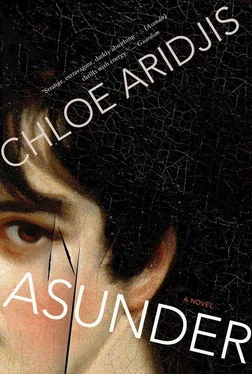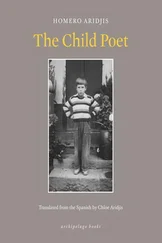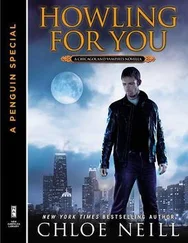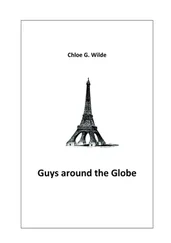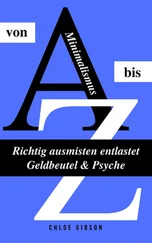As opposed to his other poems, for which he required total silence, Daniel wrote the ones in this collection while listening over and over again to a favourite song from his youth, ‘Death of a Clown’, and it wasn’t long before the graphic designer next door was driven mad and slipped two notes in his letterbox saying that if he must have something on repeat could he at least vary it weekly, or from time to time choose another Kinks song, but he just didn’t understand, Daniel said, that no other song would conjure up the atmosphere required to finish his collection, and it wasn’t only the lyrics — the dry, clagging make-up, the old fortune-teller lying dead on the floor, the insect trainer searching for his runaway fleas, the tigers that no longer roared — but the tune. And he couldn’t listen to it through his headphones, either, for the funerary circus melody, or what he thought of as a funerary circus melody with its dying tambourine, had to be strung up, black and rattling, through his flat.
Like leaves unfastening from their tree, one by one he would print out each finished poem, a tiny obituary, and send it off.
To my surprise, for we had never taken a trip together despite our many years of friendship, Daniel asked me one evening whether I would like to go to Paris with him for the holidays. A correspondent of his, he explained, a poet from Ljubljana, was getting divorced from his wife of twelve years, and while they sorted things out in Slovenia their flat in Paris, where they had been living during their entire marriage, would remain empty. They weren’t interested in making a profit at a time like this, he added, so all we’d have to pay for was food and the Eurostar.
I could feel the little hairs on my arms rising as I listened to his proposition. A holiday from Jane, from the flat, from the museum. Not to mention that the years came and went and I had rarely used my days off work for anything memorable; I’d remain in the city and simply sleep late, wander the streets, tinker with my landscapes, but after four or five days feel desperate for routine. And then there was the fact I would probably never in my life have the money to pay for two weeks in Paris myself. I had visited the city once, aged fifteen, and the memories were dim. The more I reflected, the more it seemed like a brilliant idea. I nearly interrupted Daniel with an immediate yes but caught the word just in time, remembering there were a few other factors to consider. I promised him an answer in a day or two.
True, he had been my best friend for the past nine years. But I had never seen him first thing in the morning or last thing at night. We had never played house or even spent long unbroken spells of time together. There had always been an exit. I didn’t want to introduce any complications. When I’d asked how many bedrooms he said he was pretty sure there were two. But what if there weren’t?
All morning and afternoon at work, I debated. Like a dog that scratches at the door to be let in, and once inside it scratches at the door to be let out, and once you let it out all it wants is to enter again, and once you get up and open the door it comes in as if for the first time, only to change its mind seconds later and scratch at the door, which since it is winter must remain closed.
Some individuals, regardless of age, reach out and seize what they want from life. Others do not. The following day at work I witnessed the familiar dance between an old man and an empty chair. I had seen it many times. I was standing a few feet away quietly chatting with a colleague while trying, in the subtlest of ways, to assert my territory, when a white-haired man resembling an ancient mouse entered the room and immediately eyed my empty chair. He stared at it longingly but I could see him hesitate. At any moment I might return. He looked at me, then back at the chair. At me, back at the chair. After a minute or two he sighed and shuffled off into the next room to stare at the next empty chair he wouldn’t occupy. I could have taken him by the arm and led him to one of the wooden benches in the other rooms. Or told him that, despite having the best paintings, the Sainsbury Wing had the least comfortable chairs.
After a dozen mental back-and-forths, I accepted. Daniel immediately wrote to his friend to make arrangements.
‘What do you mean you’re going away for two weeks?’
The moment of most overlap in our lives, if I stayed up late enough, took place in the kitchen over a pot of tea. Jane flicked the switch on the kettle and reached for a pack of blue Pall Malls on the counter. Since Lucian, she had started smoking again full-time.
‘I have a chance to go to Paris, for free.’
‘We were going to repaint the flat.’
‘We can do it the first weekend I’m back.’
She waved her hand. ‘Don’t bother. I’ll do it myself. January’s going to be a really busy month at work. I won’t have time and I want to start the year with nice white walls.’
She bent over the stove and lit a cigarette, then tilted her head as she exhaled loudly for effect.
‘What about Lucian? Can’t he help?’
‘He’s going up north to see his brother. Basically I’m going to be here on my jacksy for two bloody weeks.’
‘I’m sorry Jane, but it’s too good to turn down. Daniel is being lent a flat.’
‘Are you going to be sharing a bedroom?’
I had to snuff out the glint in her eye, quick. ‘Of course not.’
‘Well, there might be a bit of night migration.’
‘No, there won’t, trust me.’
My flatmate and best friend had met only a handful of times, and on those few occasions neither had made much of an effort. In Daniel’s eyes, Jane was ‘relentlessly morose’. In Jane’s eyes, Daniel was distant and pretentious. When thrown into the same space, Daniel always asked about any new bands she’d signed, and Jane would ask how his writing was going, and from there the conversation would grind to an awkward halt unless I came to the rescue.
‘You wait and see.’ She raised an eyebrow and laughed, a hoarse, dusky laugh I’d never heard coming out of her before.
Daniel told me to envision the Eurostar as a giantess straddling two cities. London lay at her ankles, Paris at her head, and as the train hurtled through towns, fields and somewhat lacklustre landscape, we were moving up her thighs, he said, circling the curve of her waist, sloping up and across her breasts, and would finally emerge on her face, a mechanical murmur pressing down on her lips, the slant of her nose, her sea of hair.
In the four-seat configuration we each had a window, the third seat was empty, and in the fourth sat a Chinese man who spent the journey underlining passages in a Bible with red and green markers. At one point the train slipped into a tunnel and we crossed the inside of the giantess, history smoothed out into twenty minutes of subterranean darkness, a diplomatic handshake 150 feet underwater. The black outside the window was severed in two by the blur of the rail, and for a few moments I forgot our destination.
Once we emerged from the tunnel and into France the landscape went from barren to populated within minutes, as if an animator were feverishly working to fill in the space. The train zoomed past rows of wind turbines, threepronged ghosts slicing the air, and pylons that looked like metal cat’s cradle or some other thread-pulling game. Rows of dour apartment blocks, the next thing to jab the horizon, sprang into view as the rural landscape receded. Paris was coming into focus.
The poet from Ljubljana had sent Daniel detailed instructions on how to reach his flat from the Gare du Nord. After a brief ride on the RER we emerged at the Luxembourg Gardens and wheeled our suitcases noisily along the uneven streets, past busy cafés and dusk-filled corners until reaching rue Claude Bernard, then down its sloping pavement to number 49. The entrance was marked by large green doors so heavy they required two hands to push open and beyond these doors stood the bird-like concierge, who after confirming our identity handed us the keys and explained something to Daniel while pointing towards the courtyard. We crossed this courtyard, climbed a flight of stairs, then another.
Читать дальше
